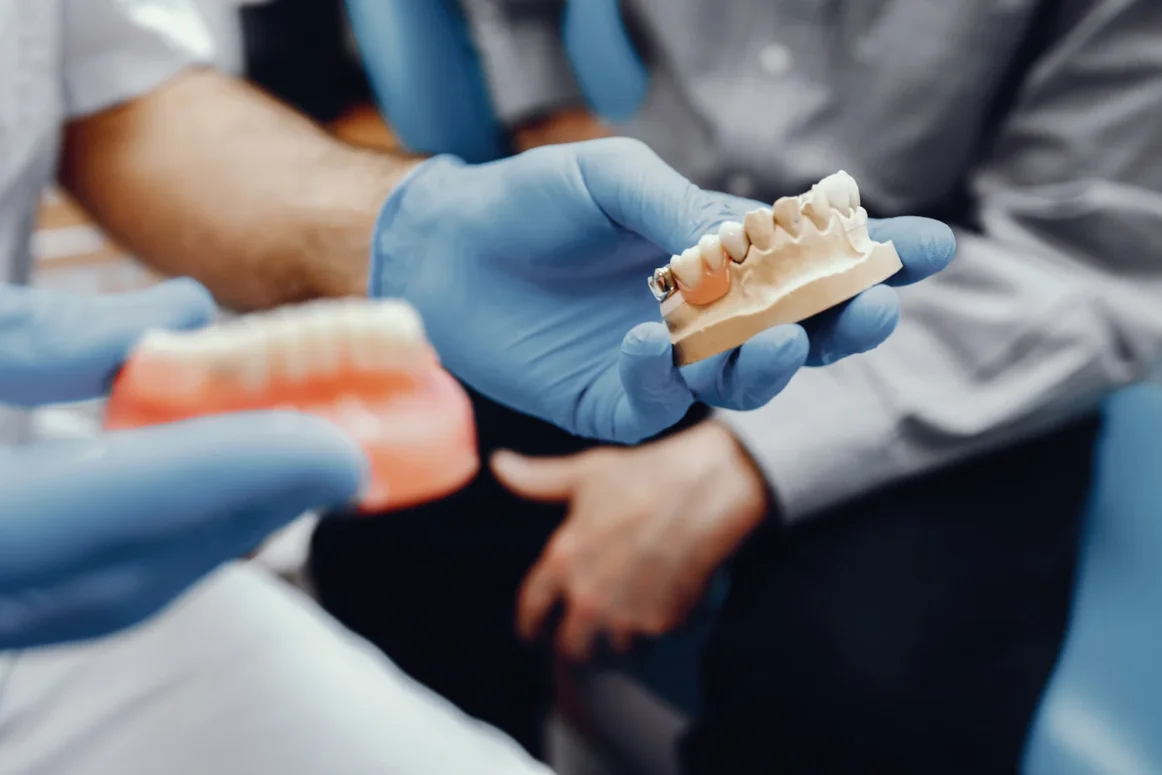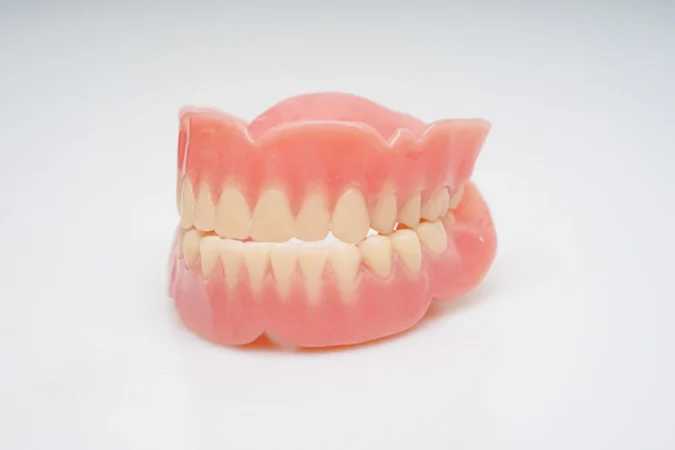Table of content
Table of content
Everything you need to know before undergoing prosthetic treatment
Nowadays, having a nice smile and beautiful teeth are part of the confidence we have in ourselves. Thanks to medical innovations and the advancement of technology, there are currently different dental treatments for each of the problems that may arise with our teeth throughout our lives, whether it is tooth loss, problems with cavities or any other problem that we have with our teeth.
Next we will talk about dental prosthetic treatment, and everything it covers. We will see that it is ideal for people who have lost one or more teeth or because they simply want to change their natural teeth for aesthetic reasons or because they no longer fulfill their dental function. If any of the points mentioned above are your anxiety, you no longer have to worry since you will know all the details to restore your teeth in this article.
What is dental prosthetic treatment?
Dental prosthetic treatment is a treatment that replaces missing teeth or those that have simply been lost in the denture with an artificial tooth. In addition, if tissues have been lost, this treatment reconstitutes them, giving you a new and radiant smile that will give you the confidence to smile again and at the cost you decide with your dentist.
What is dental prosthetic treatment performed for?
This treatment is one of the most suitable for restoring missing teeth or teeth that have suffered an accident, for example, that are cracked, or simply for aesthetic reasons. The main function of this treatment is to replace one tooth with another to give the best appearance, both for the smile, the teeth in general, and for the patient’s physical appearance, which in one way or another helps them regain their self-esteem.
Who can receive dental prosthetic treatment?
Dental prosthetic treatment is suitable for anyone who has lost permanent teeth, whether it is one tooth or several. Clearly we must go to a dentist or a trusted clinic to check our teeth and, according to our dental needs, recommend some of these treatments or others. We must remember that we cannot make this decision because we want to, but rather we must pay attention to health professionals, since they are the ones who have the knowledge and experience, and will recommend the best solution to restore our teeth.
What are the advantages of dental prosthetic treatment?
Currently there are many advantages to having dental prosthetic treatment. Below we present the most important ones:
- Oral health: You will see beautiful new teeth completely free of cavities and ready to give you the confidence you so desire. This new denture will restore your dental life, so you can start taking care of them from scratch, giving them all the attention they deserve.
- Restore your smile: These new teeth are physically equal to or better than natural teeth. So no one will notice that you have a new tooth. Your new teeths will simply give you the best smile that best suits your mouth.
- Durability: Depending on the type of tooth you get, these new teeth will last a long time, depending on their care and type of material. In addition to this, they do not wear out easily. This also includes visits to the dentist, brushing properly several times a day, flossing, and paying attention to the foods and liquids the patient consumes.
- Comfort: These new teeth do not move or are uncomfortable, therefore they do not need to be removed to apply a dental cleaning. In addition to this, they are aligned according to natural teeth. So you don’t have to worry if your new dentures will be at the same level as your other teeth, and of the same color.
How is dental prosthetic treatment performed?
As explained above, the patient must go to a trusted dental health center or dentist to check the problem that the patient has with their teeth. This includes exams, X-rays, and others that will help the dentist know which is the most appropriate treatment for the patient according to the problem or situation in which their teeth are.
After the patient has received approval from the dentist to undergo prosthetic treatment, the dentist will advise the patient on the appropriate prosthetic treatment, such as those listed below:
- Dental crowns: Dental crowns are dental prostheses made perfectly to the size of each patient’s teeth. They can also be called covers that are placed on the outside of the damaged tooth, or on the tooth that needs to be restored.
- Dental veneers: Dental veneers are very thin sheets placed on the patient’s teeth to improve their aesthetics. These veneers are made of various materials such as composite, porcelain and resin. They are currently being highly requested by thousands of people worldwide.
- Dentures: As the name indicates, dentures are teeth that are created to replace teeth that the patient has lost. These can be several teeth or complete dentures depending on the patient’s needs.
- Dental bridges: Like the treatments mentioned above, dental bridges are prostheses made to measure for the patient’s teeth that replace missing teeth. Dental bridges are usually made of zirconia.
- Dental implants: Dental implants are metal pieces that are located or placed in the jaw bones, this means that they are under the gums. Like the previously mentioned treatments, dental implants replace missing teeth.
Below we present the steps of how general dental prosthetic treatment is performed and a detailed explanation of each of these steps:
- Check: The dentist will thoroughly check the patient’s teeth to see if there is enough space to place the new teeth, in addition will check if the patient has any periodontal disease.
- Dental impressions: According to the patient’s dentition and the need for one or more teeth, the appropriate prostheses will be created for the patient’s mouth. It should be noted that these are created to the exact size of the tooth needed.
- Tooth extraction: The patient’s tooth is extracted if he or she still has the unwanted tooth. This step is for patients who still have the tooth or part of it in their teeth. It should be noted that a local anesthetic is placed on the gum so that the patient does not feel pain during tooth extraction.
- Placement: The dentist proceeds to fix or place the prosthesis on the patient’s teeth, and when it is finished he will check with the patient its comfort and function.
After the patient has his new teeth or new dentures, the dentist will give them some recommendations in the short and medium term, both for the hygiene of the new dentures and for their durability.
Summary of the document
If you are one of the people who has problems with your teeth, whether you are missing a tooth or due to caries problems your tooth no longer fulfills its dental function, this treatment may be ideal for you. Remember that you must visit a trusted clinic so that the dentist can carry out a complete study on your teeth, so that they can recommend the best treatment according to your needs and budget. You can ask the dentist all the questions you want, for example: which dental prosthetic treatment is longer lasting, more economical, or simply which is the most appropriate according to the condition of your teeth.
















 70%
70% 

